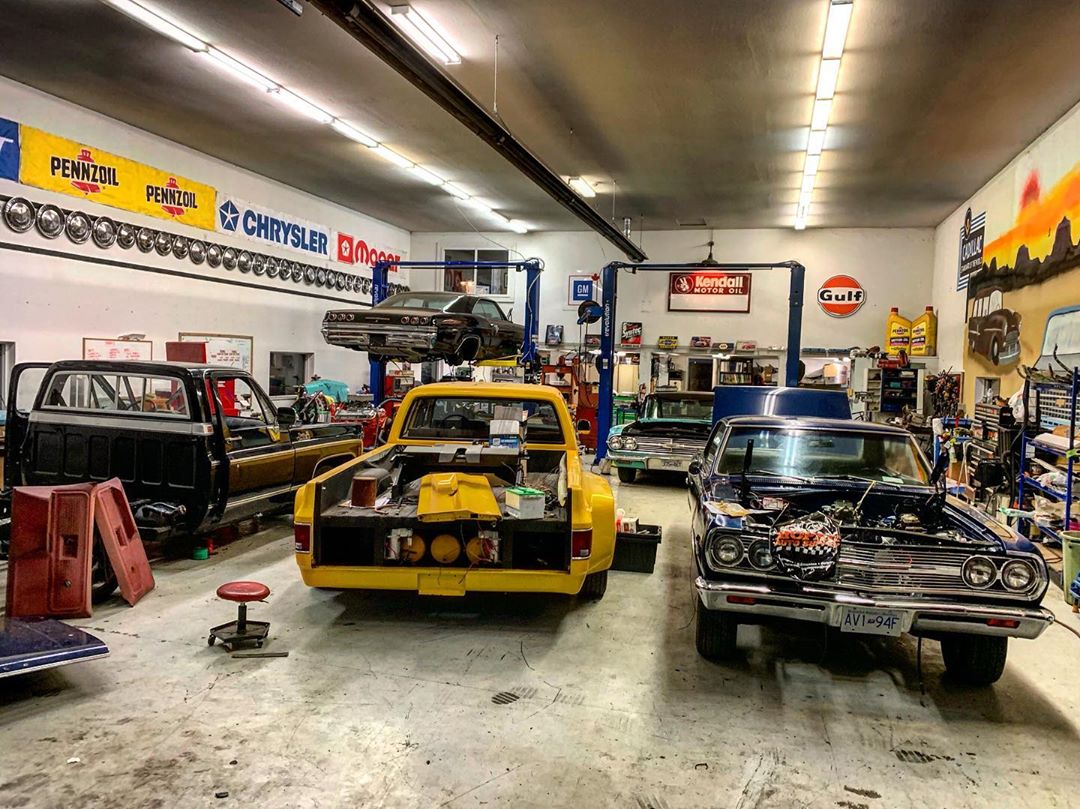All Categories
Featured

Your vehicle's engine is the heart of your automobile, and keeping it in leading condition is crucial for ideal performance and longevity. Routine engine tune-ups are a terrific way to keep your cars and truck's wellness, enhance gas effectiveness, and stay clear of costly fixings down the road. Whether you're an automobile fanatic or someone who simply intends to maintain their automobile running efficiently, these engine tune-up ideas will certainly assist you get one of the most out of your cars and truck.
- Change Spark Plugs. Stimulate plugs play an essential function in beginning your engine and making sure smooth burning. With time, spark plugs can end up being dirty or broken, resulting in misfires, decreased fuel performance, and rough idling.
During an engine tune-up, inspect and replace your stimulate plugs if required. The majority of lorries call for brand-new spark plugs every 30,000 to 100,000 miles, relying on the kind. Frequently replacing ignition system makes sure appropriate ignition and optimal engine efficiency.
- Examine and Clean the Air Filter. The air filter stops dirt, dirt, and debris from entering your engine. A clogged up or filthy air filter limits air movement, causing your engine to function more challenging and melt even more fuel.
Examine your air filter during a tune-up and change it if it's filthy. In messy atmospheres or areas with heavy air pollution, you might need to alter the air filter a lot more regularly. A tidy air filter can enhance fuel performance and expand the life of your engine.
- Inspect and Change Belts and Tubes. Belts and tubes are essential for various engine functions, such as powering the alternator, water pump, and cooling system. In time, these components can break, battle royal, or wear, possibly bring about breakdowns.
Throughout a tune-up, check belts and pipes for signs of wear and replace them if required. Changing these components proactively can conserve you from costly repair services and stop unanticipated failures.
- Tidy the Fuel System. Your fuel system, consisting of the gas injectors and gas lines, can collect dirt and carbon down payments over time, reducing engine efficiency. Cleansing the gas system throughout a tune-up helps enhance efficiency and fuel economic situation.
You can utilize a gas system cleaner or have a specialist mechanic perform an extra thorough cleansing. This step is specifically vital for older vehicles or automobiles that regularly drive in stop-and-go traffic.
- Inspect the Battery and Charging System. A healthy and balanced battery is important for starting your engine and powering electric elements. During a tune-up, inspect the battery terminals for corrosion and make sure the links are limited.
Inspect the battery's voltage and change it if it reveals indicators of weak point. Furthermore, have the generator and charging system examined to ensure your battery remains charged throughout procedure.
- Change the Engine Oil and Oil Filter. Oil modifications are a basic component of engine maintenance. Engine oil lubricates moving components, reduces friction, and aids control engine temperature level. Gradually, oil comes to be polluted and sheds its effectiveness.
During a tune-up, change the engine oil and oil filter to maintain your engine running efficiently. Follow your vehicle's supplier recommendations for oil type and modification intervals.
- Check the Cooling System. The cooling system avoids your engine from overheating. With time, coolant can deteriorate or become polluted, lowering its effectiveness.
Inspect the coolant degree and condition throughout a tune-up, and flush and replace it if needed. Inspect the radiator, water pump, and hoses for leaks or damage. A well-maintained air conditioning system aids your engine run at the ideal temperature level and protects against overheating.
- Examine the Ignition System. A defective ignition system can cause beginning concerns and minimized engine performance. During a tune-up, examine the ignition coils, representative cap, and blades (if relevant) Replace any kind of elements that reveal signs of wear or damages to make sure smooth and reputable engine operation.
- Pay Attention for Uncommon Noises. During a tune-up, seize the day to listen for any uncommon engine sounds, such as knocking, ticking, or hissing. These sounds can show underlying problems, such as valve problems, loosened parts, or exhaust leaks. Addressing these issues early can stop extra substantial damage.
- Use Quality Components and Fluids. When carrying out an engine tune-up, constantly make use of high-quality components and fluids that meet your lorry supplier's requirements. Inexpensive or inaccurate elements can compromise your engine's performance and dependability.
Verdict: A Well-Tuned Engine is Secret to Longevity. Regular engine tune-ups are essential for keeping your vehicle's efficiency, effectiveness, and dependability. By replacing used components, cleaning important systems, and dealing with potential issues, you can keep your engine running efficiently for years to come. Whether you're doing it on your own or relying upon a trusted auto mechanic, purchasing tune-ups is a smart method to shield your car and enjoy a much safer, smoother experience.
Latest Posts
Find Premier Auto Repair Care at Montclare Auto Repair – Expert Care for Your Vehicle
Learn How to Cut Costs on Car Maintenance with Montclare Auto Repair’s Exclusive Deals
Improve Your Building with Expenses Door Equipment
More
Latest Posts
Find Premier Auto Repair Care at Montclare Auto Repair – Expert Care for Your Vehicle
Learn How to Cut Costs on Car Maintenance with Montclare Auto Repair’s Exclusive Deals
Improve Your Building with Expenses Door Equipment
